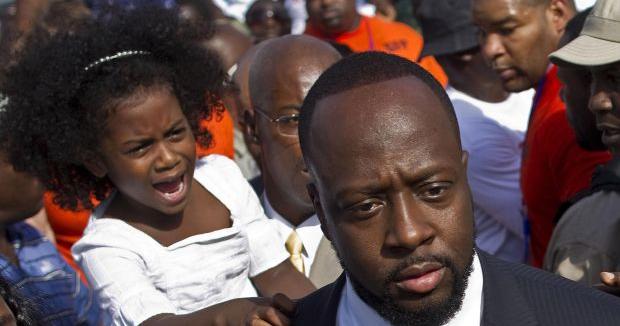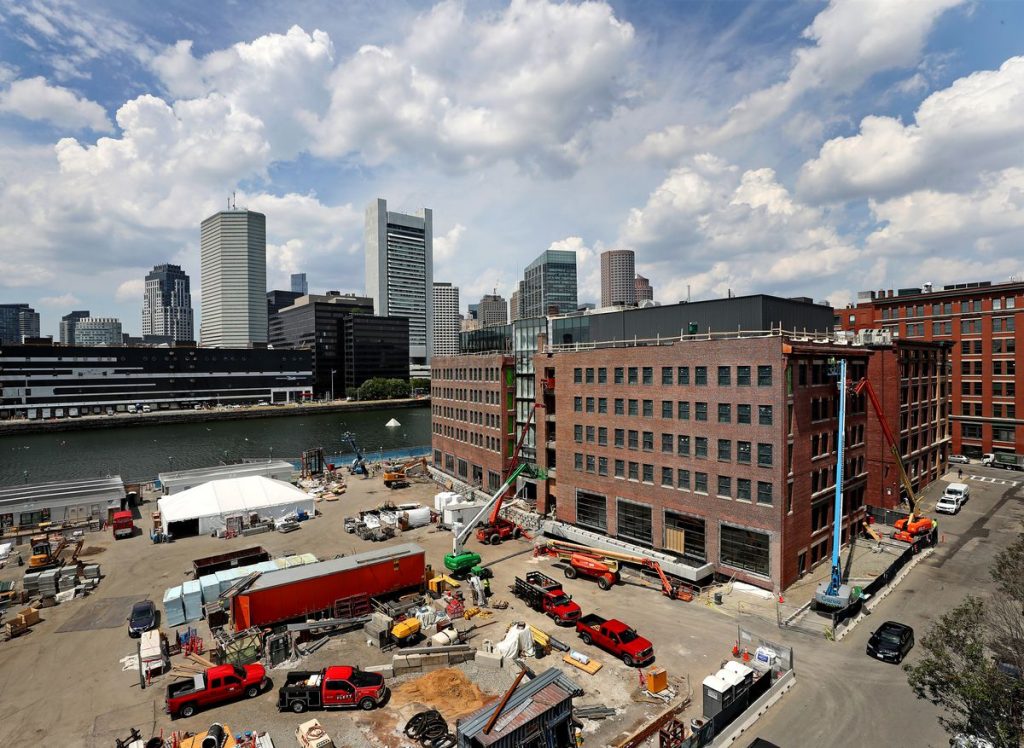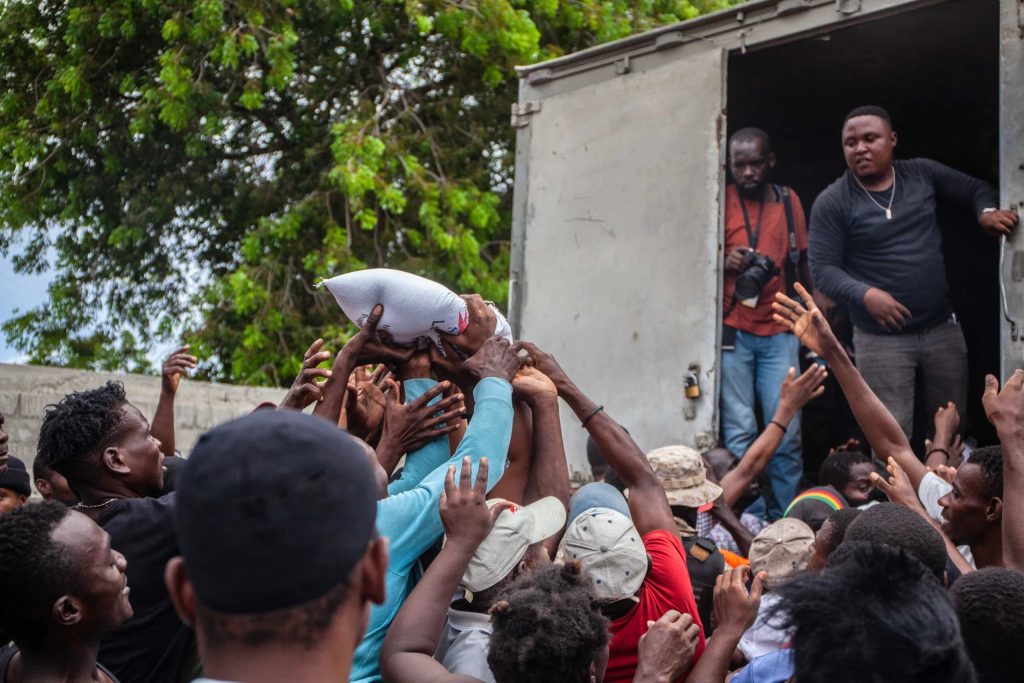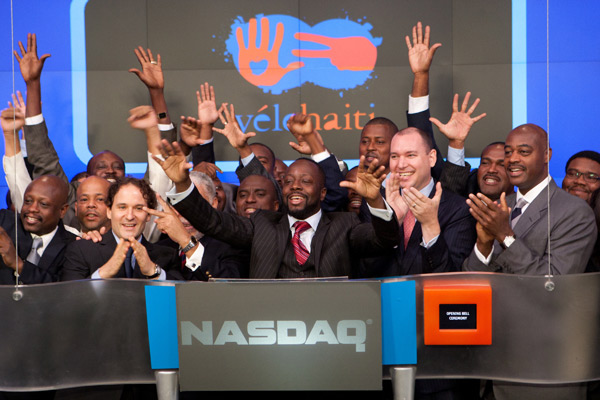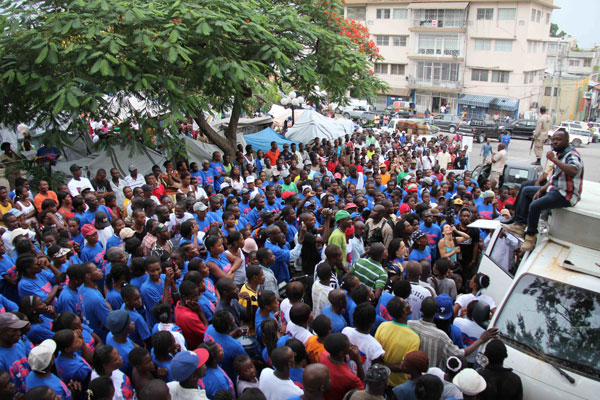UK TIMES ONLINE –
The morning after the earthquake in Haiti, I arrived in my mother country and I walked into Armageddon. I want to tell you that story, but that is not the story I want to tell you first. The earthquake is Haiti’s present, and I want to talk about Haiti’s past, because in that past lies the hope for my native island’s future.
That may surprise some of you. When you think of the history of Haiti, it is probably the recent one, of natural and political disaster. What hope, you may think, lies there? If you do not know much about Haiti, you may already think you have heard enough. “Haiti, the poorest nation in the western hemisphere”, as is repeated so often. That is only part of the picture. We are not doomed. Haiti may be the poorest nation in the West, but it is the richest in culture.
I know that many people I meet, in Europe and America, do not even have a geographical understanding of Haiti — they picture it only as Port au Prince, and they are not aware that the Dominican Republic and Haiti is the same island. They do not realise how safe, or how wonderful the rest of the country is outside the capital. They have no idea there is a coastline that has some of the most beautiful beachfront properties in the world, that amazes the visitors I bring — and that not a single one of them, by the way, has failed to have a great time. Every year luxury cruises stop at a thriving Haitian port called Labadee. It is only years later that a lot of those tourists find out, actually, they were in Haiti.
That is even before I begin on Haiti’s economic and architectural heritage. Have you heard of the Haiti that was so prosperous they called it Pearl Island? Of a country that was an export powerhouse, and not just in colonial times? It wasn’t so long ago that the baseballs in America were manufactured in Haiti. Did you know that in 1804 the people of Haiti defeated Napoleon, and became the first black republic and the second republic in the western hemisphere? And that, uniquely, allowed West African culture to flourish in the Caribbean, untampered with? That it is home of the Citadel, the castle on top of the island, that is the eighth wonder of the world?
So this is why I get angry when people write off Haiti. History does not lie. Has Haiti ever thrived before? Absolutely — through industry, trade and tourism. The question is now: how to get it back like that. Haiti was great, and could be, if we can only get the post-earthquake recovery reconstruction right, great again. This is an enormous chance for Haiti, and it will take the right government, and international community of business leaders. But the people of Haiti are strong. That is why they are worth investing in. We need an imaginative, ambitious Marshall Plan for Haiti that does not cave in to despair, but builds on its past glory. We Haitians have strong memories.
My parents left our dirt village when I was only one, escaping a dictatorship, and in search of a better life. They did not manage to get me to their new American home until I was 10. I cannot feel guilt that I got out. But I have made sure that I have always turned around and looked back at the place I came from.
I was talking to a friend in Haiti on the phone when the earthquake struck. “I can feel some shaking,” she said. Then the line went dead. The next thing I got was a text from her to say: “I’m running down the hill to get my kids,” then nothing.
When I made it in to Haiti, hours later, my first image was of dead bodies, strewn across the entire city. You could hear survivors still screaming from inside crumbled buildings. People were wandering the streets with bones hanging out, broken necks, mothers running with bleeding children in their arms, begging for help.
I got inside the belly of the beast: doing what I could, picking up the bodies and putting tags on them for a decent burial. I found out that I had lost at least 15 relatives. There isn’t anyone who has not lost someone. It was not until I got back to New York that I could let the tears flow. I did not want to show those people any sign that I wouldn’t be there for them.
Do I want to be President of Haiti? No. But I have to be part of rebuilding a 21st-century Haiti by any means necessary. The first step in a new Marshall Plan for Haiti is to evacuate Port au Prince — the capital has always been where the problems were — and start to plan and rebuild our urban landscape from scratch.
We do not want refugee camps. Instead, we should locate seven sites near water supplies, which will be transformed into model, well-planned cities. These seven cities would initially be laid out with temporary tents for the evacuees, but on the promise that these are converted, over time, into bricks and mortar. Unlike refugee camps, this gives people the stability they need to become independent, and is a programme that worked in New Orleans after the floods. The next step is to cultivate Haiti as a manufacturing base for America, becoming a cost-effective alternative to China, as we once were.
I am pushing hard on this plan – I am due to present it to the Black Caucus of the United States Congress. It is my vision of Haiti’s future. I look forward to seeing you there.
Wyclef Jean is a musician and founder of the Yéle Haiti Foundation (www.yele.org)

